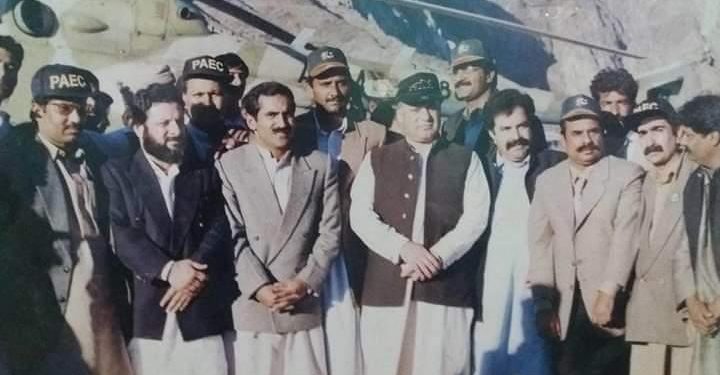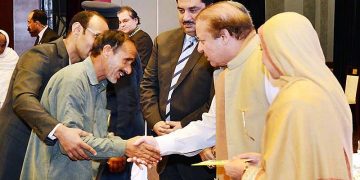In the hushed corridors of power, amidst a climate of escalating tensions, a fateful decision was made that would forever shape Pakistan’s destiny. It was the late 1990s, a time of simmering rivalry with neighbouring India. In the heart of this intense geopolitical struggle, Prime Minister Nawaz Sharif found himself facing a momentous choice — one that would test his mettle, challenge his nation’s resilience, and redefine Pakistan’s strategic position and military capabilities.
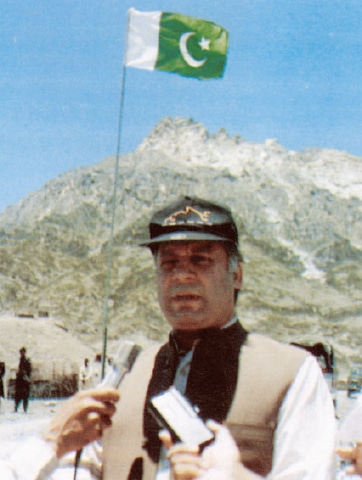 It was a time when the world held its breath, fearing the outbreak of a nuclear arms race on the subcontinent. India’s nuclear tests on 13 May 1998 sent shockwaves throughout the region, rattling Pakistan to its core. Following the tests, India’s arrogance and aggressive posture forced Pakistan to take measures to create a balance of military power in the region. However, there was intense pressure on Pakistan to not declare its nuclear capabilities, an action that would surely bring severe economic and military sanctions.
It was a time when the world held its breath, fearing the outbreak of a nuclear arms race on the subcontinent. India’s nuclear tests on 13 May 1998 sent shockwaves throughout the region, rattling Pakistan to its core. Following the tests, India’s arrogance and aggressive posture forced Pakistan to take measures to create a balance of military power in the region. However, there was intense pressure on Pakistan to not declare its nuclear capabilities, an action that would surely bring severe economic and military sanctions.
As international pressure mounted, Nawaz Sharif faced a formidable challenge. The weight of responsibility bore down upon him as he grappled with the potential consequences of either choice. On one hand, the prospect of nuclear tests held the promise of safeguarding Pakistan’s sovereignty and deterring aggression. On the other hand, there loomed the spectre of economic isolation, sanctions, and dire consequences for the nation’s struggling economy.
In a defining moment of courage and conviction, Nawaz Sharif made the audacious decision to proceed with Pakistan’s nuclear tests. It was a calculated risk, a leap of faith in the face of daunting odds. The tests were a resounding assertion of Pakistan’s determination to protect its national interests and maintain regional stability. The world watched as the ground trembled beneath the Chagai Hills on 28 May 1998 as Pakistan detonated five nuclear devices in response to India’s five, marking a new chapter in Pakistan’s history.
In a defining moment of courage and conviction, Nawaz Sharif made the audacious decision to proceed with Pakistan’s nuclear tests. It was a calculated risk, a leap of faith in the face of daunting odds.
The aftermath of the nuclear tests brought forth a torrent of economic challenges. International sanctions imposed by the global community cast a dark cloud over Pakistan’s financial prospects. The nation found itself grappling with restricted access to international markets, reduced foreign investment, and strained trade relationships. Despite these hardships, the Pakistani people rallied together, displaying remarkable resilience in the face of adversity.
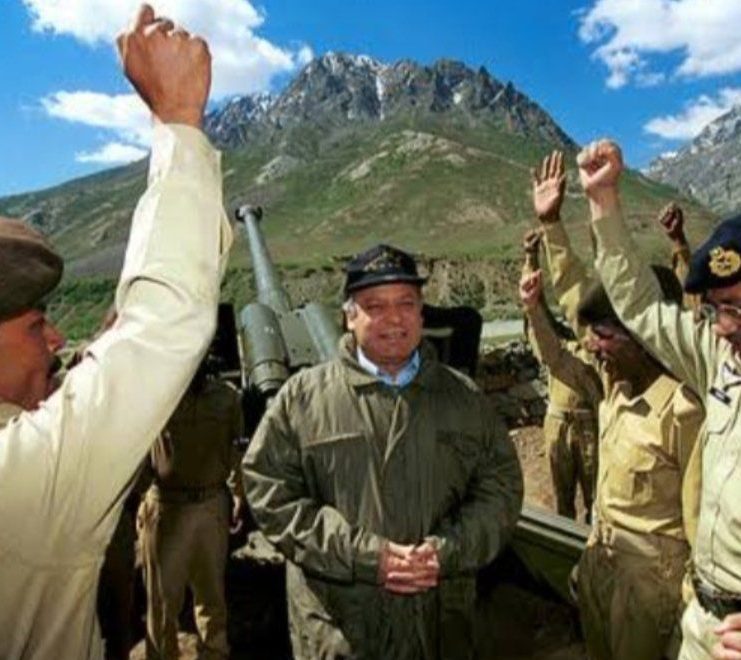
Amidst the economic turmoil, Pakistan’s nuclear tests proved to be a game-changer. The tests were not merely a display of military might, but a strategic move that solidified Pakistan’s position on the world stage. The possession of nuclear weapons served as a deterrent, reinforcing the nation’s ability to defend its sovereignty and ensuring regional stability. Pakistan’s newfound status garnered international recognition and elevated its voice in global forums.
One of the primary objectives of Pakistan’s nuclear program was to ensure national security through deterrence. The nuclear tests provided Pakistan with a credible deterrent capability, strengthening its position against potential aggression. The possession of nuclear weapons acted as a safeguard, dissuading adversaries from launching large-scale military operations. From this perspective, the tests enhanced Pakistan’s national security and reinforced its sovereignty.
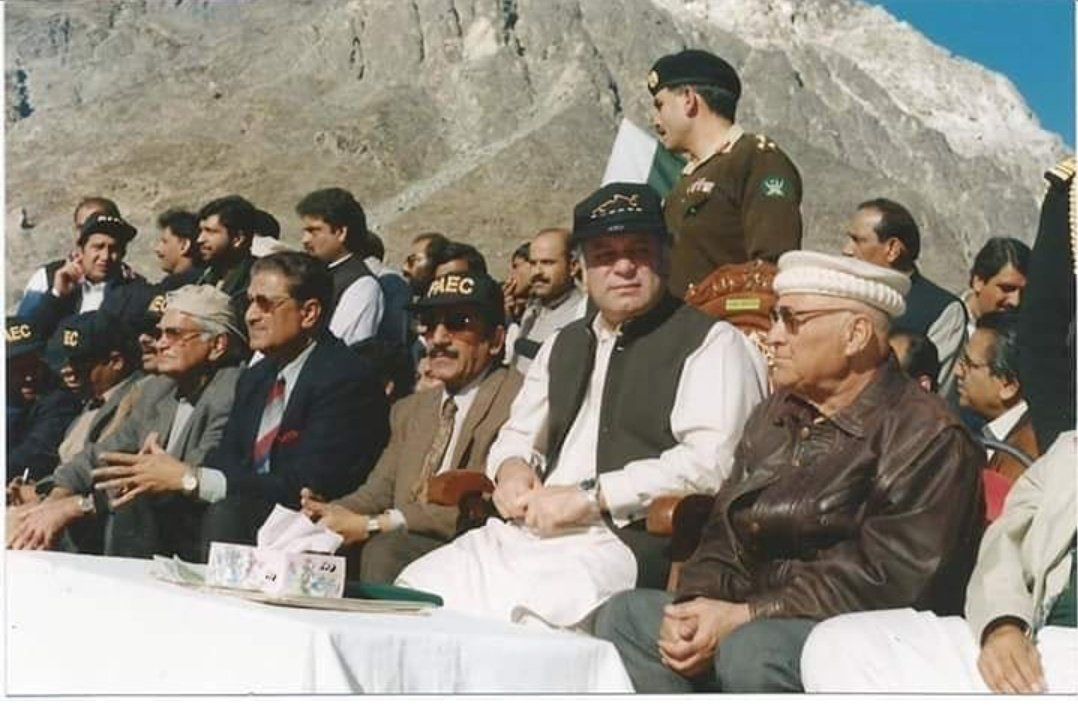
The tests paved the way for significant advancements in Pakistan’s military capabilities. Recognising the importance of a balanced defence strategy, Pakistan embarked on a path of military modernisation. Investments were made in cutting-edge technology, research, and development of advanced delivery systems. This comprehensive approach fortified Pakistan’s deterrent posture, instilling a sense of national pride and confidence.
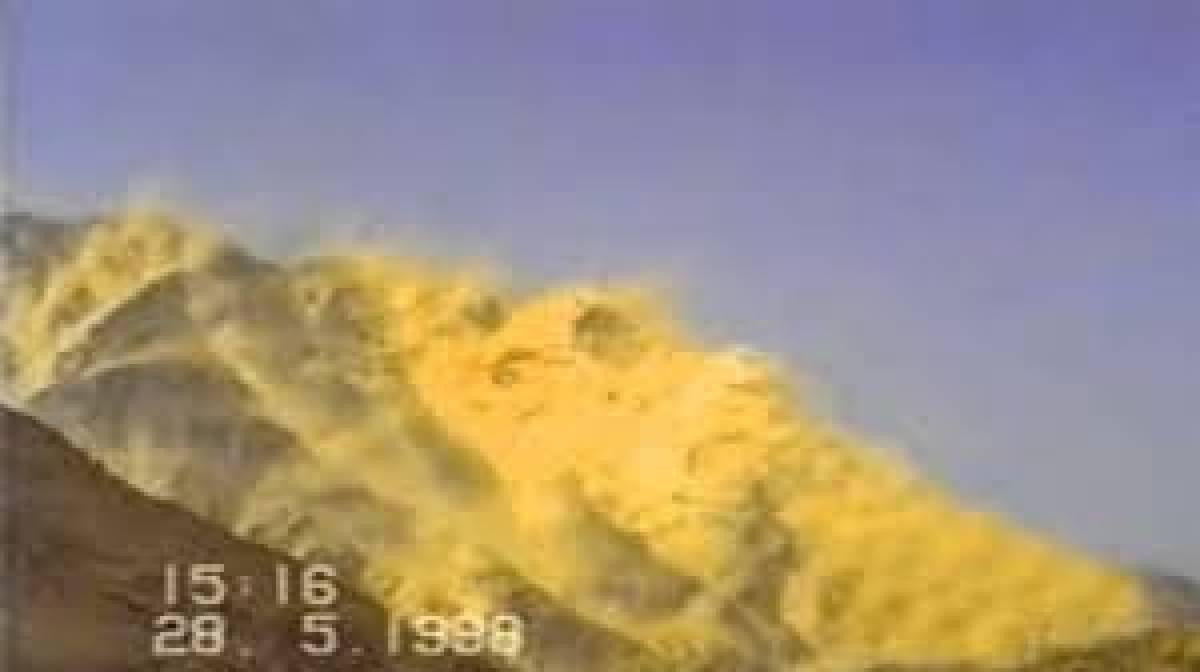 The story of Pakistan’s nuclear tests is one of courage, resilience, and the pursuit of national security. In the face of immense challenges, Nawaz Sharif’s decision to proceed with the tests showcased the nation’s determination to safeguard its sovereignty. While the economic difficulties endured, the tests strengthened Pakistan’s strategic position and military capabilities, ensuring regional stability and empowering the nation on the global stage.
The story of Pakistan’s nuclear tests is one of courage, resilience, and the pursuit of national security. In the face of immense challenges, Nawaz Sharif’s decision to proceed with the tests showcased the nation’s determination to safeguard its sovereignty. While the economic difficulties endured, the tests strengthened Pakistan’s strategic position and military capabilities, ensuring regional stability and empowering the nation on the global stage.
On 28 May this year, Pakistanis came out in droves to commemorate the 25th anniversary of a significant event in their nation’s history. The celebrations held greater fervour this time, as they took place in the aftermath of attacks on military and civilian buildings by supporters of Pakistan Tehreek-e-Insaf (PTI) and a malicious social media campaign against specific military generals, serving and retired.
The unrest reached its peak when Imran Khan, the PTI leader, was arrested in Islamabad on charges related to money laundering concerning Al Qadir Trust. PTI followers unleashed chaos by entering Army GHQ in Rawalpindi, invading military cantonments in various cities, attacking and burning the corps commander’s residence in Lahore, and defacing or destroying martyr’s monuments in various cities. Amidst this chaotic environment, Nawaz Sharif’s conduct of politics stood in stark contrast, characterised by poise and grace.
As the nation commemorated the 25th anniversary of this historic event, Nawaz Sharif’s steadfast leadership and statesmanship shone brightly, standing as a symbol of resilience amidst the chaos that unfolded in the political landscape.
The writer is a former member of the Punjab Assembly and provincial minister for school education.


